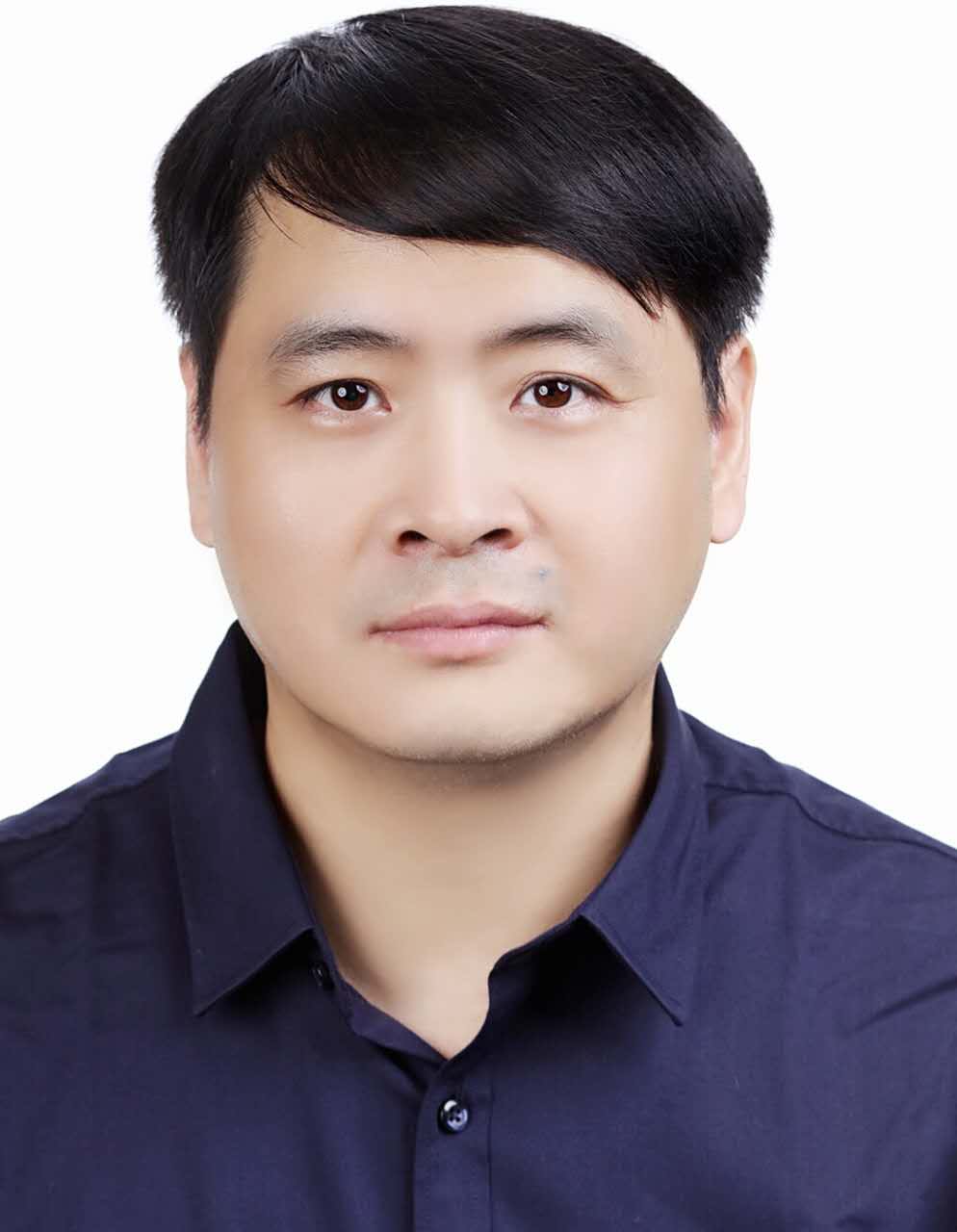1st Keynote Speaker

Prof. Ruqian Lu
Chinese Academy of Sciences, China
中国科学院院士
Title: Next to Big Data is Big Knowledge
Abstract: Recently, the topic of mining big data to obtain knowledge (called big data knowledge engineering) has become hot interest of researchers. Also the concept of big knowledge was coined in this process. The new challenge was to mine big knowledge (not just knowledge) from big data. While researchers have explored the basic characteristics of big data in the past, it seems that very few or even no researcher has tried to approach the task of defining or summarizing the basic characteristics of big knowledge. This talk will first provide a retrospective view on the research of big data knowledge engineering and then introduce formally the big knowledge concept with five major characteristics, both qualitatively and quantitatively. Using these characteristics we investigate six large scaled knowledge engineering projects: the Shanghai project of fifth comprehensive investigation on city's traffic, the Xia-Shang-Zhou chronology project, the Troy city and Trojan War excavation project, the international human genome project, the Wiki-world project and the currently very hot research on knowledge graphs. We show that some of them are big-knowledge projects but some aren't. Based on these discussions, the concept of big-knowledge system will be introduced with additional five characteristics. Also big-knowledge engineering concepts and their lifecycle models are introduced and discussed. At last, a group of future research problems on big knowledge is proposed.
Bio: Ruqian Lu is a professor of computer science of the Institute of Mathematics, Academy of Mathematics and Systems Science, at the same time an adjunct professor of Institute of Computing Technology, Chinese Academy of Sciences and Peking University. He is also a fellow of Chinese Academy of Sciences. His research interests include artificial intelligence, knowledge engineering, knowledge based software engineering, formal semantics of programming languages and quantum information processing. He has published more than 180 papers and 10 books. He has won two first class awards from the Chinese Academy of Sciences and a National second class prize from the Ministry of Science and Technology. He has also won the 2003 Hua Loo-keng Mathematics Prize from the Chinese Mathematics Society and the 2014 lifetime achievements award from the China's Computer Federation.
2nd Keynote Speaker

Prof. Bhavani Thuraisingham
The University of Texas at Dallas, USA
ACM/IEEE Fellow, AAAS Fellow
美国创新科学院士
Title: SecAI: Integrating Cyber Security and Artificial Intelligence
Abstract: Artificial Intelligence (AI) emerged as a field of study in Computer Science in the late 1950s. Researchers were interested in designing and developing systems that could behave like humans. This interest resulted in substantial developments in areas such as expert systems, machine learning, planning systems, reasoning systems and robotics. However, it is only recently that these AI systems are being used in practical applications in various fields such as medicine, finance, marketing, defense, and manufacturing. The main reason behind the success of these AI systems is due to the developments in data science and high-performance computing. For example, it is now possible collect, store, manipulate, analyze and retain massive amounts of data and therefore the AI systems are now able to learn patterns from this data and make useful predictions.
While AI has been evolving as a field during the past sixty years, the developments in computing systems and data management systems have resulted in serious security and privacy considerations. Various regulations are being proposed to handle big data so that the privacy of the individuals is not violated. For example, even if personally identifiable information is removed from the data, when data is combined with other data, an individual can be identified. Furthermore, the computing systems are being attacked by malware resulting in disastrous consequences. In order words, as progress is being made with technology, the security of these technologies is in serious question due to the malicious attacks.
Over the decade. AI and Security are being integrated. For example, machine learning techniques are being applied to solve security problems such as malware analysis, intrusion detection and insider threat detection. However, there is also a major concern that the machine learning techniques themselves could be attacked. Therefore, the machine leading techniques are being adapted to handle adversarial attacks. This area is known as adversarial machine learning. Furthermore, while collecting massive amounts of data causes security and privacy concerns, big data analytics applications in cyber security is exploding. For example, an organization can outsource activities such as identity management, intrusion detection and malware analysis to the cloud. While AI techniques are being applied to solve cyber security problems, the AI systems have to be protected. For example, how can the machine learning systems be protected from the attacks? What are the threats to the planning systems? How can expert system carry out their functions in the midst of malware attacks? What are the appropriate access control models for AI systems? How can we develop appropriate security policies for AI systems? These are questions that researchers are beginning to provide answers to.
To assess the developments on the integration of AI and Security over the past decade and to determine future directions, the presentation will focus on two major questions: (i) how can the developments in AI techniques be used to solve security problems and (ii) how can we ensure that the AI systems are secure and(iii) what are the security and privacy considerations for AI systems. Second, it will describe the application of AI including machine learning for cyber security applications such as insider threat detection. Third, it will discuss the trends in areas such as adversarial machine learning that take into consideration the attacker’s behavior in developing machine learning techniques. Fourth, it will discuss some emerging trends in carrying out trustworthy AI so that the AI techniques can be secured against malicious attacks. Fifth, it will focus on the privacy threats due to the collection of massive amounts of data and potential solutions. Finally, it will discuss the next steps.
Bio:Dr. Bhavani Thuraisingham is the Founders Chaired Professor of Computer Science and the Executive Director of the Cyber Security Research and Education Institute at the University of Texas at Dallas. She is also a visiting Senior Research Fellow at Kings College, University of London and a Fellow of the ACM, IEEE, the AAAS, the NAI and the BCS. She has received several awards including the IEEE CS 1997 Technical Achievement Award, ACM SIGSAC 2010 Outstanding Contributions Award, and the ACM SACMAT 10 Year Test of Time Awards for 2018 and2019. She co-chaired the Women in Cyber Security Conference (WiCyS) in 2016 and delivered the featured address at the 2018 Women in Data Science (WiDS) at Stanford University and has chaired several conferences for ACM and IEEE. Her 39 years career included industry (Honeywell), federal laboratory (MITRE), US government (NSF) and US Academia. Her work has resulted in 130+ journal articles, 300+ conference papers, 140+ keynote and featured addresses, six US patents, fifteen books as well as technology transfer of the research to commercial and operational systems. She received her PhD from the University of Wales, Swansea, UK, and the prestigious earned higher doctorate (D. Eng) from the University of Bristol, UK.
3rd Keynote Speaker

Prof. Laurence T. Yang
St. Francis Xavier University, Canada
IEEE Fellow
加拿大工程院院士, 加拿大工程研究院院士
Title: Cyber-Physical-Social Intelligence: Design, Analytics, Security and Privacy
Abstract: The booming growth and rapid development in embedded systems, wireless communications, sensing techniques and emerging support for cloud computing and social networks have enabled researchers and practitioners to create a wide variety of Cyber-Physical-Social Systems (CPSS) that reason intelligently, act autonomously, and respond to the users’ needs in a context and situation-aware manner. The CPSS are the integration of computation, communication and control with the physical world, human knowledge and sociocultural elements. It is a novel emerging computing paradigm and has attracted wide concerns from both industry and academia in recent years. Currently, CPSS are still in their infancy stage. Our first ongoing research is to study effective and efficient approaches for CPSS modeling and general system design automation methods, as well as methods analyzing and/or improving their power and energy, security, trust and reliability features. Once the CPSS have been designed, they collect massive data (Volume) from the physical world by various physical perception devices (Variety) in structured/semi-structured/unstructured format and respond the users’ requirements immediately (Velocity) and provide the proactive services (Veracity) for them in physical space or social space. These collected big data are normally high dimensional, redundant and noisy, and many beyond the processing capacity of the computer systems. Our second ongoing research is focused on the Big Data-as-a-Service framework, which includes data representation, dimensionality reduction, incremental and distributed processing, security and privacy, deep learning, clustering, prediction and proactive services, aiming at representing and processing big data generated from CPSS, providing more valued smart services for human and refining the previously designed CPSS. This talk will present our latest research on these two directions. Corresponding case studies in some applications such as smart traffics will be shown to demonstrate the feasibility and flexibility of the proposed system design methodology and analytic framework.
Bio:Laurence T. Yang got his BE in Computer Science and Technology and BSc in Applied Physics both from Tsinghua University, China and Ph.D in Computer Science from University of Victoria, Canada. He is a professor and W.F. James Research Chair at St. Francis Xavier University, Canada. His research includes parallel, distributed and cloud computing, embedded and ubiquitous/pervasive computing, and big data. He has published 200+ papers in the above areas on top IEEE/ACM Transactions/Journals including 6 and 25 papers as top 0.1% and top 1% highly-cited ESI papers, respectively. He has been involved actively act as a steering chair for 10+ IEEE international conferences. He is the chair of IEEE CS Technical Committee of Scalable Computing (2008-2011, 2018-), the co-chair of IEEE SMC Technical Committee on Cybermatics (2016-) and the vice-chair of IEEE CIS Technical Committee on Smart World (2016-2019). In addition, he is serving as an editor for many international journals and is an author/co-author or an editor/co-editor of more than 25 books from well-known publishers, invited to give around 50 keynote talks at various international conferences and symposia. His recent honours and awards include IEEE Canada C. C. Gotlieb Computer Medal (2020), Fellow of Institute of Electrical and Electronics Engineers (2020), IEEE TCCPS Most Influential Paper Award on Cyber-Physical Systems (2020), IEEE SCSTC Most Influential Paper Award on Smart Computing (2019), IEEE TCBD Best Journal Paper Award on Big Data (2019), Clarivate Analytics (Web of Science Group) Highly Cited Researcher (2019), Fellow of Engineering Institute of Canada (2019), AMiner Most Influential Scholar Award for Internet of Things (2018), IEEE TCCPS Distinguished Leadership Award on Cyber-Physical Systems (2018), IEEE SCSTC Life-Career Achievement Award on Smart Computing (2018), Fellow of Canadian Academy of Engineering (2017), IEEE System Journal Best Paper Award (2017), IEEE TCSC Award for Excellence in Scalable Computing (2017), Elsevier JCSS Journal Most Cited Paper Award (2017) and the PROSE Award on Engineering and Technology (2010).
4th Keynote Speaker

Prof. F. Richard Yu
Carleton University, Canada
IEEE Fellow
Engineering Institute of Canada (EIC) Fellow
加拿大工程研究院院士
Title: Blockchain-Enabled Internet of Intelligence
Abstract: In the era of the Internet of information, we have gone through layer, cross-layer, and cross-system design paradigms. The “curse of modelling” and “curse of dimensionality” of the current Internet of information have resulted in the popularity of using artificial intelligence (AI) for the Internet of information in the recent years. However, many significant research challenges remain to be addressed for the AI approach, including the lack of data for this data-driven approach. In a larger time scale, humans’ cooperation has gone through “grid of transportation”, “grid of energy”, and “the Internet of information” paradigms. The next cooperation paradigm could be “the Internet of intelligence” enabled by blockchain, where intelligence can be easily obtained like information and energy. In this talk, we will present some recent advances in these areas. Then, we discuss some open issues and challenges that need to be addressed in the future.
Bio: F. Richard Yu received the PhD degree in electrical engineering from the University of British Columbia (UBC) in 2003. From 2002 to 2006, he was with Ericsson (in Lund, Sweden) and a start-up in California, USA. He joined Carleton University in 2007, where he is currently a Professor. He received the IEEE TCGCC Best Journal Paper Award in 2019, Distinguished Service Awards in 2019 and 2016, Outstanding Leadership Award in 2013, Carleton Research Achievement Award in 2012 and 2020, the Ontario Early Researcher Award (formerly Premiers Research Excellence Award) in 2011, the Excellent Contribution Award at IEEE/IFIP TrustCom 2010, the Leadership Opportunity Fund Award from Canada Foundation of Innovation in 2009 and the Best Paper Awards at IEEE ICNC 2018, VTC 2017 Spring, ICC 2014, Globecom 2012, IEEE/IFIP TrustCom 2009 and Int'l Conference on Networking 2005. His research interests include connected/autonomous vehicles, security, artificial intelligence, distributed ledger technology, and wireless cyber-physical systems. He serves on the editorial boards of several journals, including Co-Editor-in-Chief for Ad Hoc & Sensor Wireless Networks, Lead Series Editor for IEEE Transactions on Vehicular Technology, IEEE Communications Surveys & Tutorials, and IEEE Transactions on Green Communications and Networking. He has served as the Technical Program Committee (TPC) Co-Chair of numerous conferences. Dr. Yu is a registered Professional Engineer in the province of Ontario, Canada, an IEEE Fellow, IET Fellow, and Engineering Institute of Canada (EIC) Fellow. The Web of Science Group has identified him as a Highly Cited Researcher. He is an IEEE Distinguished Lecturer of both Vehicular Technology Society (VTS) and Comm. Society. He is an elected member of the Board of Governors of the IEEE VTS.







